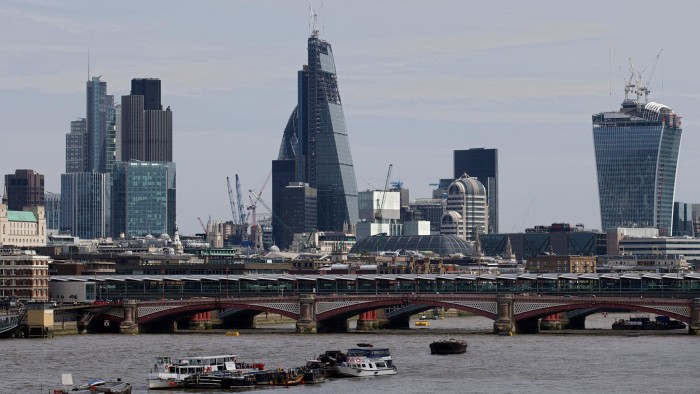Migrants set up one in seven UK companies, study reveals

Roula Khalaf, Editor of the FT, selects her favourite stories in this weekly newsletter.
Migrant entrepreneurs have created one in every seven UK companies, according to the first comprehensive analysis of official data about founder origins.
Almost half a million people from 155 countries have launched UK businesses that are currently trading with at least £1m in revenue, according to research by DueDil, a research company, and Centre for Entrepreneurs (CFE), a think-tank.
Together they are responsible for creating 14 per cent of British jobs.
Damian Kimmelman, the founder and chief executive of DueDil, noted that immigration was one of the UK’s most emotive topics and that opinions were rarely informed by evidence.
The research proves “that migrant entrepreneurs are hyper-productive, net contributors to the UK economy,” he said.
“History tells us that the most productive states always encourage intellectual and technological ferment; that’s what we’re seeing in Britain right now, and we must celebrate it.”
The research, which was based on filings at Companies House, found that entrepreneurial activity among the migrant community was nearly double that of UK-born individuals: 17.2 per cent had launched their own businesses, compared with 10.4 per cent of those born here. They are also, on average, eight years younger than indigenous entrepreneurs at 44.3 years old, compared to 52.1.
This is despite the extra challenges they face, including access to finance and cultural and language barriers, the reports authors said.
Mr Kimmelman said his experience of moving to the UK as a founder had been very positive. “Building a business in London is expensive but I got my work visa in two days.”
One of the main attractions for Mr Kimmelman was local skills. He said he was particularly impressed by the quality of graduates from the universities in Southampton, Oxford and Cambridge.
Another US-born but now UK-based founder is Gerry Ford, chairman and group chief executive of the Caffè Nero coffee chain, who emigrated from California to study for a PhD at Oxford.
“There is much more to do to improve the environment to encourage individuals to start and to [expand] businesses, but the UK is still one of the easiest places in Europe from which to operate,” Mr Ford said.
Public attitudes to migrant entrepreneurs are complex, according to the CFE.
A YouGov poll it commissioned found that, while two-thirds agreed with the statement “there are too many immigrants in Britain”, 44 per cent felt that migrant entrepreneurs made a positive contribution to the UK. This compared with 11 per cent who believed migrant entrepreneurs had a negative impact.
The largest group of foreign-born founders in the UK are Irish, followed by Indians. Germans are in third place, the research found, ahead of American and Chinese entrepreneurs, in fourth and fifth. Poland is the sixth-biggest supplier of migrant founders, ahead of France, Italy and Pakistan.
Although a lower proportion of female migrants starts businesses than UK-born women, those coming from Thailand, the Philippines and Vietnam do outnumber their male counterparts.
London benefits disproportionately from overseas entrepreneurs, with 20 times the number of migrant-led businesses of Birmingham, the second most popular location.
The capital’s suburban neighbourhoods of Twickenham, Harrow, Ilford and Kingston upon Thames are all among the top 10 spots for migrant entrepreneurs, the research found.
Together with those in central London, they account for 220,637 businesses, equivalent to almost half of all UK businesses founded by immigrants.
The chairman of CFE is Luke Johnson, a serial entrepreneur who writes a regular Financial Times column on the subject.
Comments